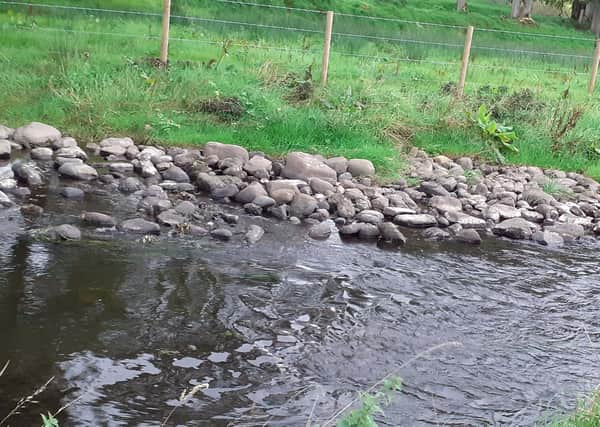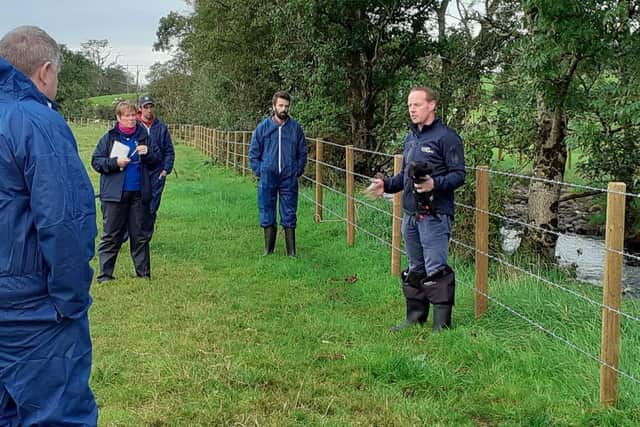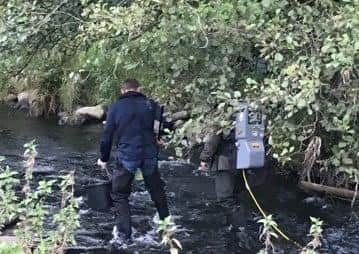Fish not ‘foul’ - the way forward in riverbank preservation


On a beautiful mild autumnal evening farmers from the Clogher Valley Environmental Farming Business Development Group met for the first time on the farm of Adrian Cathers, Drumnakilly.
The training event included a guided walk to view salmon and brown trout nurseries on the Drumnakilly Burn. The Drumnakilly Burn feeds the Camowen River, then the Strule, the Mourne and then the Foyle River.
Advertisement
Advertisement
Under the careful guidance of Adrian and expert staff from the Loughs Agency, Seamus Cullinan and Bryan Ward, the group saw the real benefits of actively and effectively managing the riverbank to control drainage, erosion, overgrazing and the impact of livestock trampling habitats. Adrian had a clear farm focus with the Loughs Agency staff to improve water and habitat quality given how integral the waterway is to his farm.


The active management of the riverbank together with provision of clean loose gravel banks provide a range of habitats suitable for adult fish to spawn, young fish to hatch and develop and older fish to build strength before they set of for the Atlantic ocean to mature before returning as adults to spawn again. Salmon will only thrive in the cleanest and clearest of waters with suitable substrates.
Regina McBennett, CAFRE adviser said that: “the highlight of the training event was undoubtedly the live demonstration of electrofishing carried out by the Loughs Agency staff.
Temporarily stunned fish were caught in a shallow net and transferred to a smaller bucket for closer inspection. There was an abundance of fish captured, examined, discussed and shown to the group and subsequently released.”
Advertisement
Advertisement
Adrian was also able to demonstrate measures he had undertaken as part of the first tranche of the Environmental Farming Scheme. In seeking to protect both his land, his waterways and his animals, which included some traditional Irish Moiled Cattle, he considered all the alternatives based on economic benefits and longevity. The group viewed the establishment of quality mixed species hedges, where a commitment to continuous weeding was the policy.


The thick stock proof hedge that emerged protects the quality of the water as well as sequestering carbon and adding ecosystems benefits to the environment. The hedges were also protected by high specification fencing which included a combination of stapelok metal posts, wooden longevity posts and high tensile wire, all erected to perfection.
Adrian avoids the use of chemical fertiliser close to hedges and riverbanks thereby preventing rapid and uncontrollable grass growth to smother young emerging hedgerows or nutrient enrichment of the waterways. All the bare root plants were sourced locally and he maintains a commitment to cutting back the young hedges in early establishment phases.
The farmers from the Environmental Farming Business Development Group who attended left the farm in no doubt that the protection and management of the rivers did not in any way inhibit the main farming production enterprise.
Advertisement
Advertisement
Effective and well maintained fencing of the river allowed the farm to be managed more productively while providing significant benefits to the wider shared environment.
The Business Development Groups Scheme is part of the NI Rural Development Programme and is part funded by the European Agricultural Fund for Rural Development.